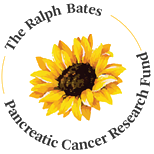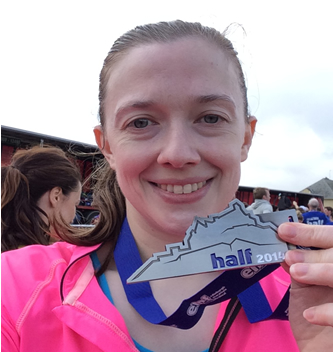Summer 2014 Newsletter
Well at least the sun is shining! We certainly needed something to pick us all up after England’s miserable performance in the world cup and then Andy Murray’s exit from Wimbledon, didn’t we? And now the “experts” are saying that there are already signs of autumn with summer hardly started. Let’s hope not!
Since our last Newsletter, we’ve appointed two new Trustees. For many years until his untimely death in April 2011, that brilliant TV sit-com writer, John Sullivan (“Dear John”, “Only Fools and Horses”, “Just Good Friends” and more) was a Trustee of our Fund and a tremendous supporter. We’ve been fortunate to persuade his widow, Sharon, to join us. Virginia Bates has known Sharon for many years and we feel privileged to have another member of the Sullivan family on our side.
Secondly, but by no means least, Mike Bridge has joined us. Mike has advised us for many years in his capacity as a Partner in the firm which audited our Accounts and now he has retired, Mike has more time to help the Fund. A very warm welcome to both.
So what have we been doing since our last Newsletter?
Our research work at St George’s University of London has shown some interesting developments. The team led by Professor Gus Dalgleish has been active in continuing to research various combinations of drugs and we extended our funding arrangements for a current PhD student, as he had found a new phenomenon in the area he was investigating, which could explain how we can reverse the resistance of the drug Gemcitabine to other drugs or combinations of drugs. Gemcitabine is the drug usually given to fight pancreatic cancer but for some reason, there is sometimes resistance to its effects by some cancerous cells. This research is ongoing.
For a long time it has been felt that the route to combating cancer is through the body’s immune system and this is another area which is being actively pursued at St George’s. Dr Androulla Elia has continued her work researching how the human immune system can be adjusted to fight cancerous cells. This research, which is largely funded by Immodulon, a small, forward-looking pharmaceuticals company, is also ongoing. We are grateful to Immodulon for their continuing support.
And what about our supporters?
Our Fund survives because of the help we get from all of our generous supporters. This is what’s been going on?
- Isabella White and Chris Tolan-Wheeler ran in the Virgin London Marathon for us and both did a tremendous job in raising funds. Chris damaged his left calf muscle a few weeks before the marathon but it didn’t stop him doing it! Isabella and her family are long term supporters of our Fund for which we are very grateful.
- Eilidh Hunter ran the Edinburgh Half Marathon for us. She beat her fundraising target and told me; “The day went very well, and was dry and cool for the most part which was appreciated! I had a really enjoyable run and although I didn’t quite make my “dream time” I was happy with my result in the end (2h13m)“.
- Victoria Bayliss ran the Silverstone half marathon for us again. I don’t know if we’ll be able to persuade her to do it next year though, because she says; “Oh, it was the worst day of my life! I have a 3 inch blister down the arch of one foot and blood blisters on the other. Shins and ankles were burning. I didn’t even feel tired. Just annoyed injuries kicked in at mile 4 and I could barely walk for the last 9 miles. Weather was horrific as well. The rain and wind got worse throughout the day. My hands were swollen. It took me an hour longer than last year, so finished in about 3 hours. I tried! Just so many injuries and too much bad luck. At least I finished”.
What can we say? All these supporters gave up their time and energy to help us and to all of them, many thanks for a tremendous achievement!
But what about the rest of you?
Sally Pavitt and her partner, Jules set up a Justgiving page to raise donations in memory of her Mum, Elizabeth, who died from pancreatic cancer in September last year only three months after finally being diagnosed with the illness. Earlier diagnosis did not highlight pancreatic cancer. It’s been a bad year for Sally and her family as her Dad died from Mesothelioma (a rare form of cancer almost always caused by exposure to asbestos dust) in June this year. Sally and Jules- your generous and ongoing support is very much appreciated.
And to all the regulars – many thanks for your efforts and energy in raising funds for us. Without all your support, the research we are doing would not be possible. Sometimes it’s hard to appreciate that our Fund has been going for just over 20 years and some of our current research started, in one form or another, not long after the Charity was formed. The dedication of the research teams is commendable as they are the ones who have to come up with new ideas, research them, test them and at the same time deal with the bureaucracy which can sometimes hinder their efforts. Enough said!
From all of us at the Ralph Bates Pancreatic Cancer Research Fund- have a healthy and enjoyable summer and enjoy the rest of the sport which has taken over our TVs!
Making a donation.
Donations can be made;
- By direct transfer to our bank account at:
HSBC. Sort code; 40-26-07. Account number; 81635190.
Please quote your name as the reference. - By donating online by credit or debit card with either;
MyDonate at www.mydonate.bt.com or
Justgiving at www.justgiving.com/rbpcr/donate or
Virgin Money Giving at www.virginmoneygiving.com
They all reclaim Gift Aid for us. - Leaving a Legacy in your Will. If you want to know more about leaving a legacy, please visit our web site at www.ralphbatespcr.org.uk
- Gift Aid. If you are a UK tax payer we can claim 25p from HMRC for every £1 you donate. You can download a Gift Aid declaration from our web site but no need to do this if you donate through one of the web sites named above. They will take care of Gift Aid. But you must have paid or will pay an amount of Income Tax and/or Capital Gains Tax for each year (6 April to 5 April) that is at least equal to the amount of tax that all the charities or Community Amateur Sports Clubs that you donate to will reclaim on your gifts for that tax year. VAT and Council Tax do not qualify
The Ralph Bates Pancreatic Cancer Research Fund – a brief history.
The Ralph Bates Pancreatic Cancer Research Fund was set up in January 1992 following the tragic death of the actor Ralph Bates, who starred in films such as “Dr Jekyll and Sister Hyde” from Hammer Films and the BBC TV series “Poldark” and the comedy “Dear John”.
At the time, Virginia Bates, his wife said; “When Ralph was diagnosed as having cancer of the pancreas, I was told that nothing could be done and he only had between six and eight weeks left to live. He was 50 years old, playing in the West End with a movie lined up for the autumn….he and our 13 year old son, William, had enjoyed the summer together messing about in boats and he’d spent many evenings with Daisy, our daughter, helping her with lines for the TV series, “Forever Green”. I couldn’t believe this was happening to my family….surely it wasn’t true, something could be done. But it couldn’t. And in spite of the tremendous care at the Royal Masonic Hospital, the predictions were correct. Ten weeks and one day later, Ralph died”.
At that time, pancreatic cancer was the fourth most common cause of death by cancer in the Western world and its incidence had doubled over the prior twenty years. It is a particular form of cancer which had received little attention from researchers. Survival rate was poor, patients living less than three months after diagnosis, as standard radiotherapy and drug treatment rarely worked. New techniques were being identified but it was necessary to support research from private donations.
As a result of research funded by this Fund and by similar funds across the world, the survival rate has improved, but as each case is unique, it is not realistic to generalise on an individual’s chances. In the UK, pancreatic cancer accounts for some 3% of all cases of cancer, causing the death of approximately 7000 people a year. Only 2% of male patients and 3% of female patients live up to five years after diagnosis.
Our main objective is to provide grants for research into causes, diagnosis and treatment of pancreatic cancer. The grants enable equipment to be purchased or leased and cover the employment costs of researchers and research expenses.



